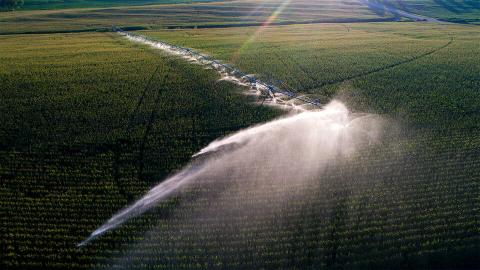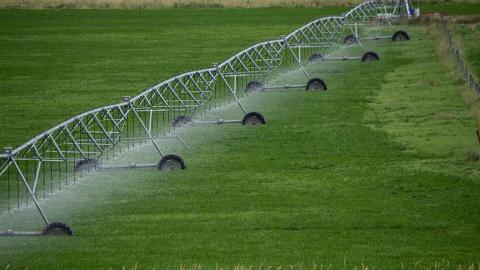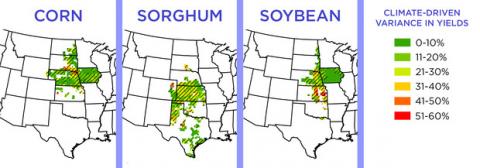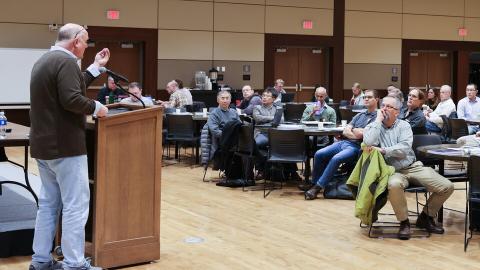
Husker Faculty, NASA Pursue Partnerships on Midwest Climate Resilience
March 28, 2024
In a new initiative, scientists from multiple institutions across the nation will collaborate on climate resilience research to help the Midwest address drought, extreme wind events and floods.
Husker Study Finds Aquifer Depletion Threatens Crop Yields
February 1, 2024
Researchers involved in this study found that an aquifer’s depletion can curb crop yields even when it appears saturated enough to meet irrigation demands, and yield losses intensify when an aquifer drops below certain thresholds.
Climate Change and Future Nebraska Water Challenges
November 10, 2021
Dave Aiken, professor and water and agricultural law specialist in UNL's Department of Agricultural Economics, highlights concerns about climate change for agriculture in Nebraska.
Long-Term Study Suggests Management Adaptations for Weather Extremes
July 16, 2019
From droughts to flooding, extreme hydrological phenomena are the costliest hazards in rainfed agriculture. A recent journal article explores how a long-term tillage study in northeast Nebraska can offer insights on successfully adapting to future climate changes by adjusting specific management practices.
Nebraska’s Changing Climate ― Highlights from the 4th National Climate Assessment
December 6, 2018
A study of Nebraska's climate data indicates changes in temperature and precipitation patterns that will directly affect many areas of Nebraska agricultural production by mid-century. Among these changes are wetter springs, more high-heat days in summer, and a longer growing season.
University Research Published in Nature Investigates Climate Effects on Ag Yields
March 22, 2018
While climate change is often described on a global scale, a new University of Nebraska-Lincoln study indicates changing climate trends in the Great Plains between 1968 and 2013 drove about 25% of the collective fluctuations in corn, soybean, and sorghum yields.
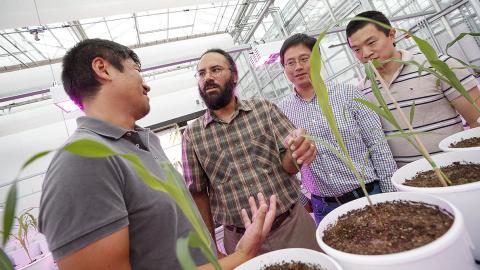
University Leads Research into Heat-Tolerant Crops
August 2, 2017
An agronomy professor at the University of Nebraska-Lincoln has been awarded a $5.78 million National Science Foundation grant to explore the effects of high nighttime temperatures on wheat and rice. The stress of high nighttime temperatures can lead to severe losses in crop yield and quality. Researchers from Arkansas State University and Kansas State University will be collaborating on the project.
